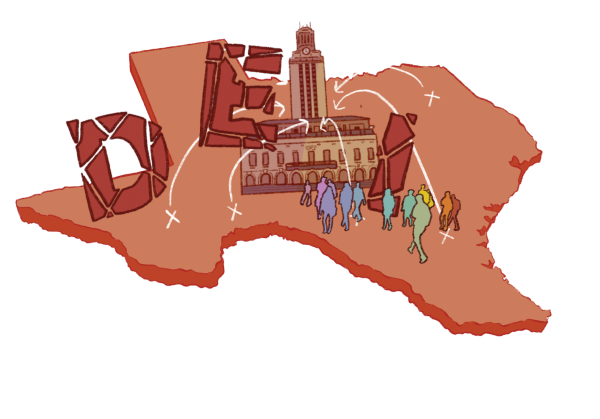Critics Ban Critical Race Theory
September 1, 2021
Critical race theory has remained a prominent point in political discussion throughout the past 3 presidential terms, according to USA Today. Now, Texas is faced with a new law that will ban teachers from discussing ideas of critical race theory in their classrooms, coming Sept. 1. House Bill 3979 pushes for the restriction of public school history teachers within their curriculums with regard to current and past issues in history that have remnants of racism or racial bias, and was signed into law by Governor Greg Abbot in early June.
World Geography and Facing History and Ourselves teacher Neil Loewenstern spent the previous spring semester dissecting and discussing critical race theory with his students. With the help of Socratic seminars and research done within the class, Loewenstern and his students have become very familiar with the bill.
“Critical Race Theory puts race and racism at the center of the history, power structure, and current realities of American life,” Loewenstern said. “It posits that whites have been privileged by a history of white supremacy and have accumulated wealth and power as a result. That these privileges are systemic and interwoven throughout American society and are reinforced consciously and unconsciously by government, schools, businesses, law enforcement, and individuals.”
As a teacher, Loewenstern believes that the bill would soon cause students and teachers to lose their rights, although he also is aware that his students’ already are aware of the history taught, and the past it has. Conservatives feel the need to ban or limit the teachings around critical race theory due to fear, and to hold onto old American myths, such as American Exceptionalism, according to Loewenstern.
“I think people support the bill because they want to believe in the myth of ‘American Exceptionalism,’” Loewenstern said. “They believe a story of America as infallible from its founding to the present day and that America is the greatest country that ever existed. People who support this bill think that teaching about racism makes their white children ‘feel guilty’ about being white and the systemic inequalities.”
Niko Perez, Manager of Education and Free Speech at PEN America, has been tracking various bills that have been introduced into state legislatures across the country, all of which are trying to outlaw, ban, or limit conversations around divisive concepts or critical race theory. PEN is a nonprofit organization that started as Poets, Essentialists, and Novelists, and has been driving to promote the freedom of writing and free speech globally.
“Essentially, we formed a coalition of over 120 organizations that formed a joint statement coming out in stark opposition against these bills,” Perez said. “Not only are we tracking, but we’re also conducting advocacy efforts working with our partners to publish these statements, to hopefully, inspire legislators, to take a different stance and to retract this really shocking and worrisome trend that we’re seeing.”
Kerry Goldmann, the Associate Director of Graduate Studies at the University of North Texas, says there are many similar bills being introduced and debated across the country. She also says that the new law in Texas affects other states as well.
“The last time I checked, it’s about 20 states that have either passed a ban or are working on bills that would do so,” Goldmann said. “That’s a scary number, and actually, Texas alone doing it is quite disturbing because a lot of people don’t know this, but Texas actually puts out the textbooks for most of the nation, and so when we make educational curriculum decisions, there’s actually quite a fallout from that.”
Perez had also stated the severity of the Texas law is different from other states, such as Idaho and Tennessee, although it is not the only bill being passed by state legislatures in the country. Texas is now one of even fewer states to have the bill officially signed into law.
“I think Texas is uniquely one of the more challenging cases that we’re seeing,” Perez said. “I think it is a nationwide conversation that extends from California to New York and everywhere in between, we’re seeing these bills pop up in Maine, Kentucky, Idaho. And it’s unsurprising, you know, last year, we witnessed the largest transgenerational movement ever in American history with the Black Lives Matter movement and the protests.”
Around the same time the bill was signed into law, the U.S. officially began to recognize Juneteenth as a federal holiday. Goldmann, however, believes this new decision is a cosmetic fix, and does not get to the root of the issue.
“Don’t make the mistake of thinking that was a coincidence,” Goldmann said. “This is going on at the same time, Juneteenth being recognized as this national holiday. I mean, it’s obviously incredible and a great step, but the bad thing is it creates this cosmetic fix.”
The coalition founded through PEN America was intended to slow the roll of politicians in many states who have begun to craft bills of a similar nature. Since then, conversations have started to arise about what should be done in classrooms, and politicians have begun to re-examine their positioning, according to Perez.
“I think that in addition to just teaching the Constitution, and First Amendment, we should also be trying to equip students with a more globalized concept of civil rights, through human rights,” Perez said. “Teaching students what human rights are, in respecting the dignity and worth of the human person, and teaching students to be analyzing and looking at current events and our histories through those lenses in to try and identify whose voices were marginalized, and how we can be amplifying them today, and learning from those voices and learning from our predecessors or ancestors mistakes.”









